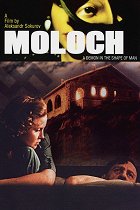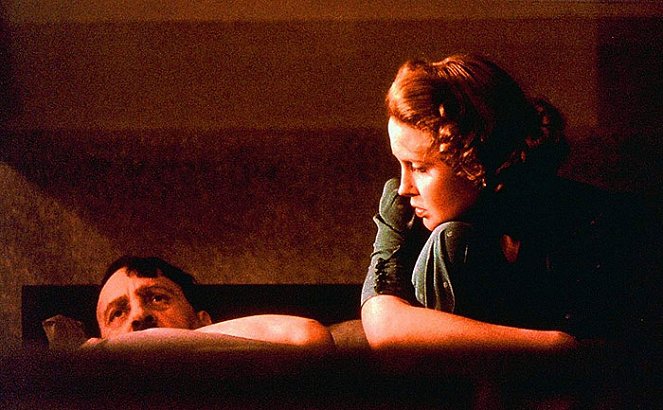Regie:
Alexander SokurowKamera:
Aleksey FedorovBesetzung:
Yelena Rufanova, Leonid Mozgovoy, Lev Eliseev, Ilya Shakunov, Владимир Богданов, Irina Tsvetkova, Ирина Соколова, Friedrich W. BauschulteInhalte(1)
Frühjahr 1942 in den Bayerischen Alpen: Auf der weitläufigen Terrasse einer von Wolken und Nebel verhangenen Bergfestung tanzt einsam eine nackte Frau. Sie weiß offenbar, dass sie von weitem beobachtet wird und grüßt ihre Bewacher. Aufgeregt und ausgelassen wartet Eva Braun auf ihren geliebten „Adi“. Die Monotonie dieses einsamen Flecks wird bald durch die Ankunft des Führers und seiner Entourage unterbrochen. Hitlers Begleitung sind sein Sekretär Martin Bormann und Reichspropagandaminister Josef Goebbels und dessen Frau Magda. Es soll ein Tag werden, an dem nicht über den Krieg gesprochen wird. Hitler zeigt sich als Hypochonder, lässt sich als Vegetarier über die Vorzüge von Brennnesselsuppe gegenüber Fleischbrühe aus und weiß gar nicht, wo Auschwitz liegt. Er erzählt wirre Dinge über den Russlandkrieg, über Stalin und Mussolini und lässt sich von seinen Gefolgsleuten feiern. Jenseits aller Banalitäten wird die Ausflugsgesellschaft auf dem Obersalzberg von Eifersucht, Misstrauen und Paranoia geprägt und in der Nacht zeigt sich dann das Böse einmal ganz privat. (WDR Fernsehen)
(mehr)Kritiken (2)
One of the films that inevitably must have a very controversial rating. An attempt at "culture for the demanding" - and who wouldn't want to be considered an aesthete... Such a film will either appeal to you, or you will die of boredom while watching it. For me, it is an unnecessary film that attempts satire, but uses problematic methods and tools in doing so. The long shots are ultimately boring, the story practically non-existent, and the characters are bizarre but rather embarrassing, not unsettling or provocative in any way. As for parody, it is not funny enough. A cold, impersonally directed film - a calculation for festival audiences... Overall impression 25%.
()
The oppressive atmosphere of the Eagle's Nest, which futilely tries to rise above the fog and the death that its owner helped unleash in the valleys of all of Europe. The entire film essentially describes the efforts/illusion of a moody and increasingly neurotic old man trying to escape the crushing weight of the surrounding world, which he already senses will have fatal consequences for him. That is why his refuge transforms into a kind of summer holiday visit (perhaps with relatives), where Adolf, longing to forget, at least for a moment, the crumbling destruction of himself and his thousand-year "work," encounters an infantile, unrealizable love for Eva (perhaps like a summer love for a distant cousin). And just as children convince themselves that if they don't think about the impending start of school (or the Eastern Front), they can prolong their summer dream, Hitler and Eva seal themselves in their refuge, where time truly almost stands still, because like everything in the proximity of this leader, he too is slowly dying. I admire Sokurov for capturing that, and we can only congratulate the screenplay writer for the Prix de scénario.
()

